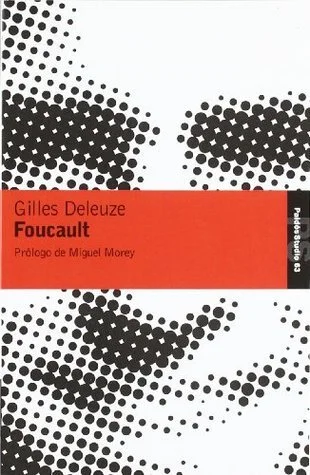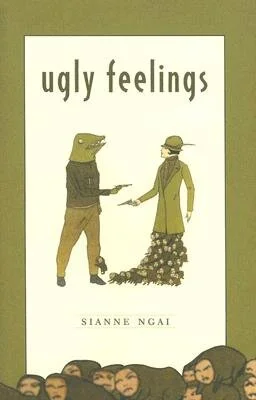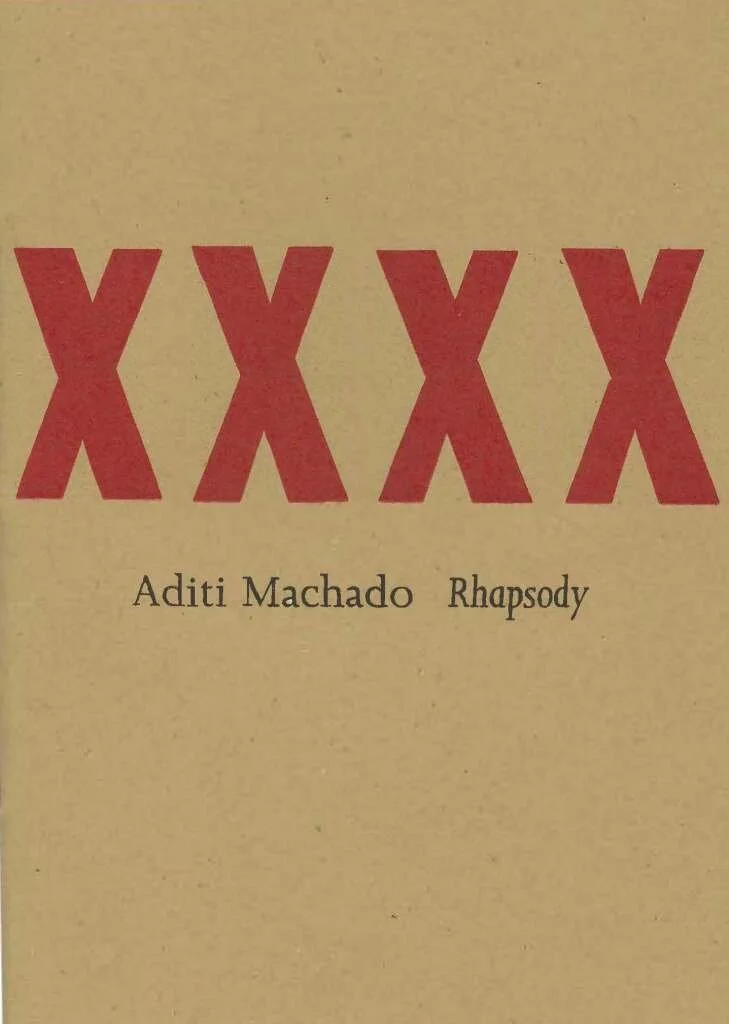Amplifying the Ihns Reading List
TOWARD THE END of Jeff Alessandrelli’s excellent interview with Kirsten Ihns on the Kenyon Review site, Ihns offered a list of what she is or will soon be reading from her “third list,” which is essentially even more stuff a person reads when preparing for qualifying exams in a PhD program. The list is very good! But because it zips past at the end of an interview that already offers readers much to chew on, we thought we’d take a moment here to slow down and amplify the titles, organized according to Ihns’s own categories:
“So, for example, finally going to read…”
The Order of Things: An Archaeology of Human Sciences
Michel Foucault
With vast erudition, Foucault cuts across disciplines and reaches back into seventeenth century to show how classical systems of knowledge, which linked all of nature within a great chain of being and analogies between the stars in the heavens and the features in a human face, gave way to the modern sciences of biology, philology, and political economy. The result is nothing less than an archaeology of the sciences that unearths old patterns of meaning and reveals the shocking arbitrariness of our received truths. In the work that established him as the most important French thinker since Sartre, Michel Foucault offers startling evidence that "man"—man as a subject of scientific knowledge—is at best a recent invention, the result of a fundamental mutation in our culture.
Foucault
Gilles Deleuze
Deleuze (1925-1995) was Professor of Philosophy at the University of Paris VIII. He is a key figure in poststructuralism and one of the most influential philosophers of the twentieth century. In Foucault, Deleuze presents one of the most incisive and productive analyses of the work of Michel Foucault. This is a crucial examination of the philosophical foundations and principal themes of Foucault's work, providing a rigorous engagement with Foucault's views on knowledge, punishment, power, and the nature of subjectivity. Translated by Sean Hand.
“What is an Apparatus?” and Other Essays
Giorgio Agamben
"Apparatus" (dispositif in French) is at once a most ubiquitous and nebulous concept in Foucault's later thought. In a text bearing the same name ("What is a dispositif?") Deleuze managed to contribute its mystification, but Agamben's leading essay illuminates the notion: "I will call an apparatus," he writes, "literally anything that has in some way the capacity to capture, orient, determine, intercept, model, control, or secure the gestures, behaviors, opinions, or discourses of living beings." Seen from this perspective, Agamben's work, like Foucault's, may be described as the identification and investigation of apparatuses, together with incessant attempts to find new ways to dismantle them.
Ugly Feelings
Sianne Ngai
Envy, irritation, paranoia—in contrast to powerful and dynamic negative emotions like anger, these non-cathartic states of feeling are associated with situations in which action is blocked or suspended. In her examination of the cultural forms to which these affects give rise, Sianne Ngai suggests that these minor and more politically ambiguous feelings become all the more suited for diagnosing the character of late modernity. Along with her inquiry into the aesthetics of unprestigious negative affects such as irritation, envy, and disgust, Ngai examines a racialized affect called "animatedness," and a paradoxical synthesis of shock and boredom called "stuplimity." She explores the politically equivocal work of these affective concepts in the cultural contexts where they seem most at stake, from academic feminist debates to the Harlem Renaissance, from late-twentieth-century American poetry to Hollywood film and network television.
“Part of my third list is a kind of intro to critical Black aesthetics…”
A Billion Black Anthropocenes or None
Kathryn Yusoff
No geology is neutral, writes Kathryn Yusoff. Tracing the color line of the Anthropocene, A Billion Black Anthropocenes or None examines how the grammar of geology is foundational to establishing the extractive economies of subjective life and the earth under colonialism and slavery. Yusoff initiates a transdisciplinary conversation between feminist black theory, geography, and the earth sciences, addressing the politics of the Anthropocene within the context of race, materiality, deep time, and the afterlives of geology.
Listening to Images
Tina Campt
In Listening to Images Tina M. Campt explores a way of listening closely to photography, engaging with lost archives of historically dismissed photographs of black subjects taken throughout the black diaspora. Engaging with photographs through sound, Campt looks beyond what one usually sees and attunes her senses to the other affective frequencies through which these photographs register. She hears in these photos-which range from late nineteenth-century ethnographic photographs of rural African women and photographs taken in an early twentieth-century Cape Town prison to postwar passport photographs in Birmingham, England and 1960s mug shots of the Freedom Riders-a quiet intensity and quotidian practices of refusal. Originally intended to dehumanize, police, and restrict their subjects, these photographs convey the softly buzzing tension of colonialism, the low hum of resistance and subversion, and the anticipation and performance of a future that has yet to happen. Engaging with discourses of fugitivity, black futurity, and black feminist theory, Campt takes these tools of colonialism and repurposes them, hearing and sharing their moments of refusal, rupture, and imagination.
Habeas Viscus
Alexander G. Weheliye
Habeas Viscus focuses attention on the centrality of race to notions of the human. Alexander G. Weheliye develops a theory of "racializing assemblages," taking race as a set of sociopolitical processes that discipline humanity into full humans, not-quite-humans, and nonhumans. This disciplining, while not biological per se, frequently depends on anchoring political hierarchies in human flesh. The work of the black feminist scholars Hortense Spillers and Sylvia Wynter is vital to Weheliye's argument. Particularly significant are their contributions to the intellectual project of black studies vis-à-vis racialization and the category of the human in western modernity. Wynter and Spillers configure black studies as an endeavor to disrupt the governing conception of humanity as synonymous with white, western man. Weheliye posits black feminist theories of modern humanity as useful correctives to the "bare life and biopolitics discourse" exemplified by the works of Giorgio Agamben and Michel Foucault, which, Weheliye contends, vastly underestimate the conceptual and political significance of race in constructions of the human. Habeas Viscus reveals the pressing need to make the insights of black studies and black feminism foundational to the study of modern humanity.
On Being Human as Praxis
Sylvia Wynter
The Jamaican writer and cultural theorist Sylvia Wynter is best known for her diverse writings that pull together insights from theories in history, literature, science, and black studies, to explore race, the legacy of colonialism, and representations of humanness. Sylvia Wynter: On Being Human as Praxis is a critical genealogy of Wynter's work, highlighting her insights on how race, location, and time together inform what it means to be human. The contributors explore Wynter's stunning reconceptualization of the human in relation to concepts of blackness, modernity, urban space, the Caribbean, science studies, migratory politics, and the interconnectedness of creative and theoretical resistances. The collection includes an extensive conversation between Sylvia Wynter and Katherine McKittrick that delineates Wynter's engagement with writers such as Frantz Fanon, W. E. B. DuBois, and Aimé Césaire, among others; the interview also reveals the ever-extending range and power of Wynter's intellectual project, and elucidates her attempts to rehistoricize humanness as praxis.
“Contemporary poetry I’ve read and enjoyed recently…”
The Living Method
Sara Nicholson
The poems in Sara Nicholson’s The Living Method imaginatively grasp the raw materials of nature, calling the reader to the “outer limits of the dark,” where one notices the music of the woods and gardens while searching for “the youngest photo of the night.” These poems explore and create various orders of images, a mysterious taxonomy of words and scraps of phrases that revive what in lesser hands would remain dying metaphors. Here, in her debut collection, a new and singular poetic logic reveals itself, growing tenderly out of the “droning chamber” of the poet's throat, through Google image searches, and from the rich soil of archaic landscapes.
Lull
Nora Claire Miller
Published by Ghost Proposal.
Rhapsody
Aditi Machado
Albion Books Series 7, Volume 2. Published in January 2020. There are one hundred and sixty five copies, of which the first twenty are signed by the author. All materials upcycled from previous Albion projects. Cover sourced from Environment Honeycomb, and text block printed on Environment Natural, both of which are made with FSC-certified 100% post-consumer fiber and manufactured using renewable energy; end sheets are Mohawk Via Black.
Utopia Pipe Dream Memory
Anna Gurton-Wachter
Anna Gurton-Wachter is a writer, editor and archivist. Utopia Pipe Dream Memory (Ugly Duckling Presse, 2019) is her first full-length collection.
Earth
Hannah Brooks-Motl
With patience and precision, Hannah Brooks-Motl's third collection of poems, Earth, explores the grand themes of love, family, economy, and home with the skill of a true craftsman. As the measured compositions of these poems shift, so do their near-sculptural forms, and a feeling both classical and contemporary develops as a result. At times a paean to poetry, other times a critique of it, Earth is a breakthrough collection by a poet whose ceaselessly sharp intellect continues to use poetry to gain insight into not only her own wants and needs, but ours, and those of poetry itself.
Every Hospital by Bertrand Goldberg (Except One)
Toby Altman
Published by Ghost Proposal.
These are just some of the books, thinkers, and theories Ihns mentions. There is much more to read in Alessandrelli’s full interview with Ihns.
You can also, of course order sundaey from Propeller Books (shipping is free).
Kirsten Ihns earned her MFA from the Iowa Writers’ Workshop, where she was a Teaching-Writing Fellow. She is currently a Ph.D. student and Neubauer Presidential Fellow in English at the University of Chicago, where she studies texts that seem to want to be images, co-founded the Plexiglas series at The Gray Center for Arts & Inquiry, co-organizes UChicago’s Poetry & Poetics Workshop, and works for Chicago Review. She is from Atlanta, Georgia.


















